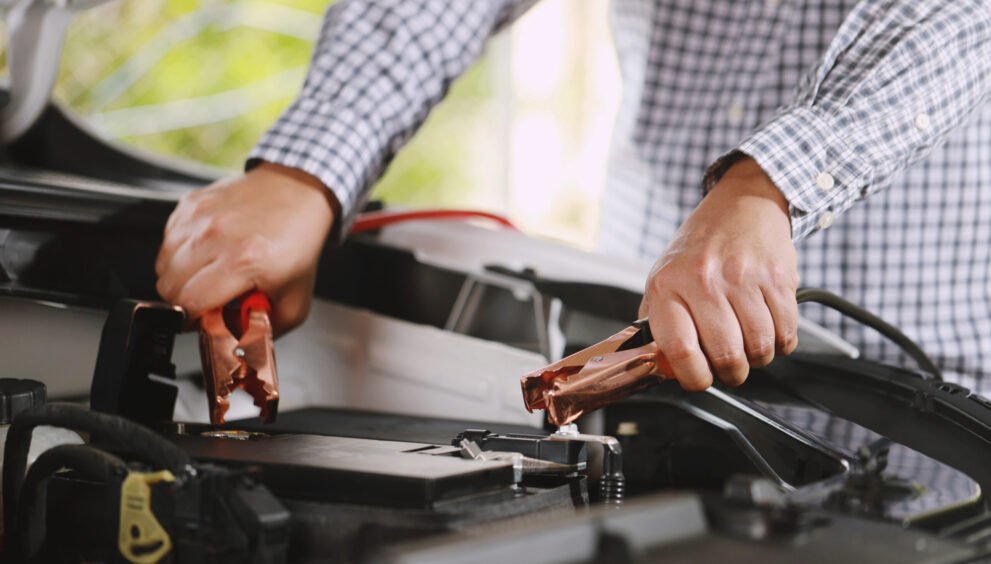Maximize Value with Used Electric Car Batteries

As the world shifts towards more sustainable energy solutions, pre-owned electric vehicle batteries are gaining attention for their potential to offer significant value beyond their initial use in vehicles.
You can maximize the value of these batteries by exploring alternative applications, such as energy storage systems for homes and businesses. This not only reduces waste but also provides cost-effective solutions for energy storage.

Repurposing used electric car batteries can help mitigate the environmental impact of battery disposal and create new economic opportunities.
Key Takeaways
- Pre-owned electric vehicle batteries have significant potential beyond their initial use.
- Alternative applications can maximize their value.
- Energy storage is a key area where these batteries can be repurposed.
- Repurposing reduces waste and environmental impact.
- New economic opportunities emerge from repurposing and reusing.
The Untapped Potential of Used Electric Car Batteries
You might be surprised to learn that your used electric car battery still has a lot to offer, even after it’s been retired from its original purpose. The growing number of electric vehicles on the road has led to an increasing number of batteries being replaced, raising questions about their disposal and potential reuse.
As the world shifts towards more sustainable energy solutions, the value of used EV batteries becomes more apparent. These batteries, while no longer suitable for their original use in vehicles, retain a significant amount of their capacity and can be repurposed for various applications, including energy storage systems.
Why EV Batteries Maintain Significant Value After Vehicle Use
Used EV batteries still hold considerable value due to their remaining capacity. Even after they’ve been used in electric vehicles, these batteries can retain up to 80% of their original capacity, making them suitable for less demanding applications. “The second life of EV batteries is a rapidly evolving field, with significant potential for energy storage and other uses,” notes an industry expert.
The potential for repurposing or recycling these batteries not only reduces waste but also provides cost-effective alternatives for energy storage and other applications. This is particularly relevant as the demand for energy storage solutions continues to grow, driven by the increasing adoption of renewable energy sources.
Current Market Demand for Second-Life Batteries
The market demand for second-life EV batteries is on the rise, driven by the need for affordable energy storage solutions. Companies are increasingly looking to repurpose used EV batteries for various applications, including grid stabilization and renewable energy storage. This trend is expected to continue as the supply of used EV batteries grows.
According to recent market analyses, the demand for second-life batteries is expected to increase significantly in the coming years, driven by the growing need for energy storage and the declining cost of battery technologies. As a result, the market for secondhand ev batteries and refurbished electric car battery packs is becoming increasingly lucrative.
Understanding Your Used Electric Car Batteries’ Worth
Used electric car batteries still hold substantial value, and understanding how to assess this value is key to maximizing your returns. Whether you’re looking to sell your gently used electric vehicle battery modules or repurpose them, knowing their worth is crucial.
The value of your used electric car batteries is determined by several factors, including their condition, age, and the current market demand for previously owned electric automobile batteries. To accurately assess their worth, it’s essential to understand these factors and how they impact the overall value.
Battery Degradation Explained: Capacity vs. Calendar Age
Battery degradation is a critical factor in determining the value of your used electric car batteries. It’s influenced by both capacity loss over time and calendar age. Capacity loss refers to the reduction in the battery’s ability to hold a charge, while calendar age affects the battery’s overall health and longevity.
A battery’s capacity is typically measured in kilowatt-hours (kWh), and its degradation can be assessed by comparing its current capacity to its original capacity. Understanding this degradation is vital for determining the battery’s remaining useful life and, consequently, its value.
How to Determine Your Battery’s Remaining Value
To determine your battery’s remaining value, you’ll need to assess its current condition and compare it to industry standards. This involves evaluating factors such as its state of charge, depth of discharge, and overall health. You can use specialized tools or consult with professionals to get an accurate assessment.
It’s also essential to research the current market demand for used electric vehicle batteries and compare prices from different buyers or recyclers. This will give you a better understanding of your battery’s worth and help you make informed decisions.
Factors That Affect Resale Price
Several factors can impact the resale price of your used electric car batteries, including their age, condition, and the presence of any damage. Additionally, market fluctuations and the availability of similar batteries can influence the price you’re offered.
- The battery’s original capacity and its current state of health
- The demand for used EV batteries in your region
- The presence of any certifications or warranties
By understanding these factors and taking steps to maintain your batteries, you can maximize their value and get the best possible return on your investment.
Top Options for Selling Used Electric Car Batteries
The battery in your used electric car still holds significant value, and there are several options to capitalize on it. As the demand for sustainable energy solutions grows, the market for pre-owned electric vehicle batteries is expanding. You can explore various avenues to sell your used battery, ensuring it continues to contribute to the eco-friendly ecosystem.

Our Premium Recycling Program: How It Works
Our premium recycling program offers a hassle-free and environmentally responsible way to dispose of your used electric car battery. The process is straightforward: simply contact us to schedule a pickup, and our team will handle the rest. We ensure that the battery is recycled in accordance with the latest environmental regulations, minimizing its ecological footprint.
The benefits of our program include:
- Competitive pricing for your used battery
- Eco-friendly recycling practices
- Comprehensive handling and transportation services
Alternative Buyers: Energy Storage Companies and Refurbishers
Energy storage companies and refurbishers are increasingly looking for used electric car batteries to repurpose for energy storage systems. These businesses see the value in giving old batteries a new life, reducing waste and supporting renewable energy projects. You can sell your battery to these companies, knowing it will be used to store energy for homes or businesses.
Manufacturer Trade-In and Buyback Programs
Some electric vehicle manufacturers offer trade-in or buyback programs for used batteries. These initiatives encourage sustainability and can provide you with a convenient way to sell your battery. By participating in these programs, you not only receive a fair price for your used battery but also contribute to the development of a more circular economy in the automotive industry.
When exploring these options, consider the following key factors:
- The condition and age of your battery
- The market demand for used batteries
- The reputation and reliability of the buyer or recycling program
Preparing Your Used Electric Car Batteries for Maximum Value
Maximizing the value of your second-hand EV batteries requires careful handling and preparation. To achieve the best possible price, it’s essential to focus on safety, documentation, and proper packaging.
Essential Safety Protocols for Handling and Storage
When handling used electric car batteries, safety is paramount. Always wear protective gear, including gloves and safety glasses, to prevent injury. Ensure the storage area is well-ventilated and free from flammable materials. It’s also crucial to follow the manufacturer’s guidelines for handling and storage to prevent damage.
- Store batteries in a cool, dry place away from direct sunlight.
- Avoid stacking batteries on top of each other to prevent physical damage.
- Keep batteries away from water and moisture.
Required Documentation and Testing Reports
To sell your used electric car batteries, you’ll need to provide potential buyers with detailed documentation and testing reports. This includes:
- Battery health reports showing the remaining capacity.
- Maintenance records to demonstrate the battery’s history.
- Test results to verify the battery’s performance.
Having comprehensive documentation can significantly enhance the credibility and value of your refurbished electric car battery packs.
Proper Packaging and Transportation Guidelines
When transporting used electric car batteries, it’s vital to follow proper packaging guidelines to prevent damage. Use sturdy packaging materials that can protect the batteries during transit. Ensure that the batteries are securely fastened and cannot move around during transportation.

By following these guidelines, you can ensure that your used electric car batteries are prepared for sale, maximizing their value and appeal to potential buyers.
Environmental and Financial Benefits of Battery Recycling
Recycling your used electric car batteries not only benefits you financially but also contributes to a more sustainable environment. By choosing to recycle, you’re supporting a circular economy that reduces waste and promotes the reuse of valuable materials.
Reducing Environmental Impact Through Proper Recycling
Proper recycling of gently used electric vehicle battery modules significantly reduces the environmental footprint associated with mining and processing raw materials. This process helps to minimize the potential for pollution and conserves natural resources.
- Decreases the need for primary materials extraction
- Lowers greenhouse gas emissions associated with production
- Reduces waste sent to landfills
Tax Incentives and Rebates for Battery Recycling
You can also benefit financially from recycling your previously owned electric automobile batteries through various tax incentives and rebates. Many governments offer programs to encourage the responsible disposal and recycling of EV batteries.
Some of the financial benefits include:
- Tax credits for recycling EV batteries
- Rebates from manufacturers and local governments
- Potential savings on waste disposal costs
How Your Choice Makes a Difference in the EV Ecosystem
By recycling your used electric car batteries, you’re contributing to a more sustainable EV ecosystem. This choice supports the development of closed-loop production systems where materials are continually cycled back into production, reducing the demand on primary resources.
Conclusion: Taking Action with Your Used Electric Car Batteries
As you’ve learned, used electric car batteries still hold significant value, whether for resale, repurposing, or recycling. Understanding the worth of your used electric car batteries is crucial in making informed decisions about their disposal or reuse.
By considering options like premium recycling programs, energy storage companies, and manufacturer trade-in initiatives, you can maximize the value of your used electric car batteries. Proper handling, storage, and documentation are also essential to ensure a smooth transaction.
As the demand for second-life batteries continues to grow, taking action with your used electric car batteries not only benefits you financially but also contributes to a more sustainable electric vehicle ecosystem. You can make a positive impact by choosing the right path for your used electric car batteries.
FAQ
What is the average lifespan of a used electric car battery?
The average lifespan of a used electric car battery varies depending on factors like the type of battery, usage, and maintenance. Typically, an electric vehicle (EV) battery can last between 8 to 15 years, with some lasting even longer. When repurposed, these batteries can still have a significant remaining life, making them valuable for second-life applications.
How do I know if my pre-owned electric vehicle battery is still valuable?
To determine the value of your pre-owned electric vehicle battery, you should assess its remaining capacity, overall health, and any existing damage. You can consult with professionals who specialize in evaluating used EV batteries or check the battery’s documentation and testing reports to gauge its condition.
Can I sell my secondhand EV battery to energy storage companies?
Yes, you can sell your secondhand EV battery to energy storage companies. These companies often look for used EV batteries to repurpose for energy storage systems, providing a viable market for your pre-owned battery. You can research energy storage companies that buy used EV batteries and reach out to them to discuss potential sales.
What are the benefits of refurbished electric car battery packs?
Refurbished electric car battery packs offer several benefits, including cost savings compared to buying new batteries, reduced environmental impact by giving old batteries a new life, and the potential for improved performance after refurbishment. Refurbished batteries can be a reliable option for those looking to replace or upgrade their EV batteries.
How do I properly store my gently used electric vehicle battery modules?
To properly store your gently used electric vehicle battery modules, follow essential safety protocols, such as keeping them in a cool, dry place, away from flammable materials, and ensuring they are not damaged or tampered with. You should also check the manufacturer’s guidelines for storage recommendations specific to your battery type.
Are there any tax incentives for recycling my previously owned electric automobile battery?
Yes, there are tax incentives available for recycling your previously owned electric automobile battery. Many governments offer tax credits or rebates for responsible battery recycling, which can help offset the costs associated with the recycling process. You can check with local authorities or the recycling facility to determine the available incentives.





































































































































































































